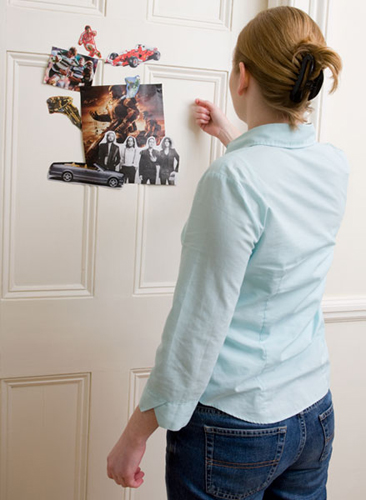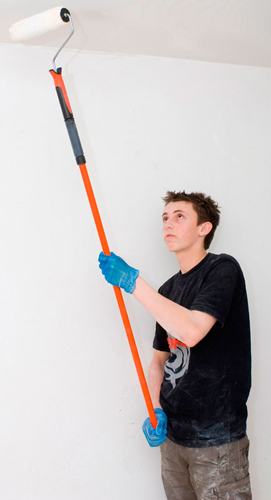Building trust Teaching your adolescent
The trust that flows
between you and your child begins at birth and changes as he grows and
develops. In his babyhood and early years he must trust you completely
to meet his emotional and physical needs. As he gets older, the balance
shifts as you teach, guide, and accept that he can do more for himself
until, when he moves through adolescence, it is your turn to trust in
him to meet his own needs and make decisions for himself.
Your past experience of
him, the fears or confidence you feel in yourself, and perhaps the
successes and mistakes of your own adolescence will affect how much
trust you place in your teenager. The faith he has in you comes from
much the same basis as yours in him. If you have cared for and supported
him consistently and done what you said you would do, he’s likely to
continue to trust you as he enters adolescence. Recognize, however, that
his physical, social, and emotional development is taking a leap
forward and it’s up to you to change along with him by offering him new
opportunities to show you how trustworthy he is.
Be respectful
The most powerful way to
gain respect is to act respectfully to others. When you treat your
teenager with courtesy and honesty, and have a high opinion of him, he
is more likely to live up to your expectations. Model this in all your
relationships, and your value for others will rub off.
Teach him
Making choices that are
right for him depends upon your teenager’s ethics and morals, an
internal barometer telling him what is right and wrong. Help him reflect
on his values through casual conversations rather than lectures. Often,
topics covered in the news or raised on TV can stimulate discussion
about right and wrong. Talking about subjects as diverse as war, racial
hatred, faith, human rights, and green issues can all help crystallize
your teenager’s perspective on how he should treat people, animals, and
the environment.
Take small steps
You will never know what
your teenager can achieve unless you give him the chance. Start small:
Give him opportunities to make his own choices and live with them.
Whether he’s picking the decor for his bedroom, taking responsibility
for his chores, or choosing school subjects, each one is a practice
session for good decision making. As he shows you that he is capable,
gradually increase the level of responsibility you give him. Then it’s
your turn to practice respecting his decisions, even if you disagree.
Expect mistakes
It is an extremely rare
child who navigates adolescence without slip-ups, and it could be
argued that mistakes educate your child more rapidly than successes.
Your challenge is to minimize risks so that, when things go wrong,
they’re not catastrophic. Good communication and a clear idea of where
your teenager is, who he’s with, and when he’s expected home means you
know where to go and who to contact if there is a problem. Education
about drugs, alcohol, and contraception gives your teen the information he needs to weigh the risks himself.
Stay calm
It can be terribly
disappointing when your teenager does not live up to your trust in him.
However, keep in mind the many times he has been trustworthy, and keep
his transgressions in perspective. Focus on working out what went wrong
and how to rebuild trust rather than overreacting with emotive
statements such as, “I’ll never trust you again.”
Get support
Share your successes and
war stories with other parents who have teenagers. If parenting your
teen is very stressful, access help and advice through books and
websites, or contact your child’s school for courses specifically for
parents of teens.
Finally
Your teenager will no
doubt have many successes, make some poor choices, and learn from both.
He may or may not make the same mistakes you did. You cannot fully
protect him from these mistakes or take the consequences for him. His
experiences as an adolescent shape the adult he will become, and in this
phase of his development you are an important navigator—but no longer
the driver in his life.
His own space
Respect your teen’s personal and private space, usually his bedroom, by knocking before entering to show your trust.

Building values
Talking about a range of subjects when they are brought up in the news or on TV will help your teen form his ethics.

Start small
Give your child responsibility for chores such as doing her own laundry to help her practice for the future.

Take a chance
The opportunity to make his own choices, for example, about his bedroom decor, will allow him to demonstrate his capability.

Talk about it
Frequent and open communication with your child helps to guide her through the ups and downs of adolescence.

Too short?
Compromising on certain things, such as acceptable clothing, gives your child the chance to show that she can be trusted.
